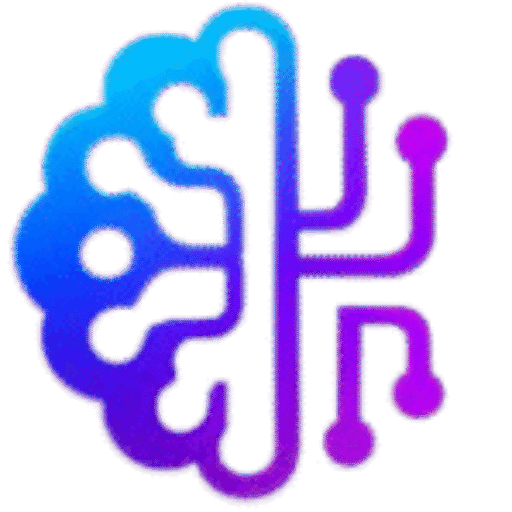Best AI Tools for Educational Apps: Revolutionizing Digital Learning
Introduction
The education industry has experienced a massive transformation in the past decade. Traditional classroom learning is gradually being replaced—or at least enhanced—by digital learning platforms. At the heart of this transformation is Artificial Intelligence (AI), which empowers educational apps to become more personalized, interactive, and effective.
From AI tutors to smart content creation, adaptive learning algorithms, and chatbots, AI tools have become essential for educators, students, and app developers. But with hundreds of tools available, which are the best AI tools for educational apps?
In this blog, we’ll explore:
- Why AI is critical for modern education apps.
- The top categories of AI tools for educational platforms.
- A detailed list of the best AI tools for educational app design and development.
- Benefits, challenges, and future trends of AI in EdTech.
Why AI in Educational Apps?
AI is not just a buzzword—it’s changing how students learn and how teachers teach. Here’s why it matters:
- Personalized Learning—AI adapts content based on a student’s performance and preferences.
- Automation—AI reduces manual tasks like grading, scheduling, and feedback.
- Engagement—Gamified, interactive experiences make learning more fun.
- Accessibility—Tools like text-to-speech, speech recognition, and translation make education inclusive.
- Data-Driven Insights—AI analyzes student behavior and provides actionable insights to teachers.
Categories of AI Tools for Educational Apps
Before we dive into specific tools, let’s look at the main categories of AI in education apps:
- Adaptive Learning Platforms—Tools that adjust difficulty and content to each student.
- AI-Powered Content Creation—Platforms that generate lessons, quizzes, and study material.
- Virtual Tutors & Chatbots—AI assistants for instant help.
- Speech & Language Processing—Tools for transcription, translation, and accessibility.
- Gamification & Engagement Tools—Making education interactive.
- Data Analytics Tools – Tracking performance and suggesting improvements.
Best AI Tools for Educational Apps
Here’s the ultimate list of the top AI tools every educational app developer should know.
1. Socratic by Google
- Category: AI Tutor
- Best For: Homework assistance and problem-solving.
- Features:
- AI-powered explanations for math, science, literature, and more.
- Uses NLP (Natural Language Processing) to understand questions.
- Provides step-by-step solutions and visual explanations.
2. Querium
- Category: Adaptive Learning
- Best For: STEM education.
- Features:
- AI-based tutoring for math and science.
- Real-time feedback to students.
- Data-driven reports for educators.
3. Content Technologies, Inc. (CTI)
- Category: AI Content Creation
- Best For: Custom e-learning courses.
- Features:
- Generates personalized textbooks and study material.
- Creates adaptive lessons for different learners.
- Smart exam preparation tools.
4. Gradescope (by Turnitin)
- Category: Assessment Automation
- Best For: Grading and feedback.
- Features:
- AI-assisted grading of assignments and exams.
- Saves time for teachers.
- Provides detailed insights on student performance.
5. Carnegie Learning (MATHia)
- Category: Adaptive Learning
- Best For: Math education.
- Features:
- Personalized AI-driven math tutoring.
- Tracks progress and adapts lessons.
- Helps teachers identify learning gaps.
6. Nuance Dragon Speech Recognition
- Category: Accessibility & Language
- Best For: Voice-based learning.
- Features:
- Converts speech to text for note-taking.
- Helps students with disabilities.
- Supports multiple languages.
7. Knewton Alta
- Category: Adaptive Courseware
- Best For: Higher education.
- Features:
- Adaptive learning pathways.
- AI-driven analytics for educators.
- Integration with major LMS (Learning Management Systems).
8. Duolingo AI
- Category: Gamified Learning
- Best For: Language learning.
- Features:
- AI-driven lessons tailored to learners.
- Interactive gamified exercises.
- Speech recognition for pronunciation.
9. Coursera AI Features
- Category: Personalized Learning
- Best For: Online courses.
- Features:
- AI-driven course recommendations.
- Adaptive quizzes and feedback.
- Smart scheduling for learners.
10. EdApp by SafetyCulture
- Category: Microlearning Platform
- Best For: Employee and professional education.
- Features:
- AI-assisted lesson creation.
- Adaptive micro-lessons for mobile learning.
- Gamification and learner analytics.
Benefits of AI Tools in Educational Apps
- Scalability—Apps can serve millions of students simultaneously.
- Cost Efficiency—Reduces the need for physical resources.
- Enhanced Engagement – AI gamifies the learning process.
- Inclusivity—Supports diverse learners with accessibility features.
- Teacher Support – AI reduces workload and allows teachers to focus on mentorship.
Challenges of Using AI in Education Apps
- Data Privacy Concerns – Student data security is critical.
- High Development Cost—Implementing AI features requires investment.
- Bias in AI Algorithms—Risk of unfair assessments.
- Dependency on Technology – Students may over-rely on AI tools.
Future of AI in Educational Apps
The future of EdTech lies in hyper-personalized learning experiences powered by AI. Expect advancements like:
- AI-driven virtual classrooms.
- Lifelong learning assistants.
- More immersive AR/VR and AI educational apps.
- AI predictive analytics for career guidance.
FAQs
1. Which AI tool is best for creating educational content?
Tools like CTI and EdApp are great for generating personalized lessons.
2. Can AI replace teachers?
No. AI supports and enhances teaching but cannot replace the human element.
3. Is AI in educational apps expensive?
Costs vary, but many platforms like Duolingo and Socratic offer free versions.
4. How does AI improve student engagement?
Through gamification, adaptive content, and real-time feedback.
5. What’s the biggest risk of AI in education?
Data privacy and over-dependence on automation.
Conclusion
AI is reshaping the educational landscape, making learning more interactive, personalized, and efficient. Whether you’re designing a language learning app, STEM tutor, or professional training platform, the right AI tools can transform your product into a next-generation EdTech solution.
By using adaptive learning platforms, AI tutors, content generators, and analytics tools, educational apps can meet the unique needs of learners worldwide.
👉 The future belongs to those who leverage AI responsibly in education.
Related Blogs (Interlinking)
To explore more AI insights for product design, check out our other detailed blogs:
- How to Use AI Tools for User Journey Mapping
- How to Use AI to Design Promotional Assets
- How to Generate Banners & Social Media Graphics with AI
- How to Use AI for A/B Testing Design Variations
- Best AI Tools for Government Product Designers
- Best AI Tools for Non-Profit Product Design
- Best AI Tools for Real Estate App Design
- Best AI Tools for Travel & Booking Platforms
- Best AI Tools for Food Delivery Product Design





